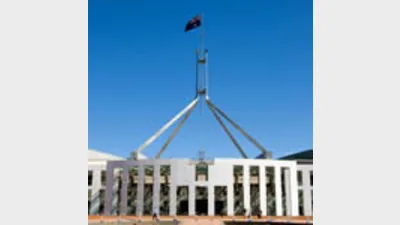Chan & Naylor question FOFA outcomes



Some changes under the Government’s Future of Financial Advice (FOFA) reforms will not have the intended results, unfairly targeting the smaller players and favouring large institutions and industry funds, according to Chan & Naylor.
Opt-in proposals did not take into account the amount of time required to build a relationship between an adviser and client, and for an adviser to demonstrate their value proposition, said David Hasib, a partner and head of financial planning at Chan & Naylor.
The increased compliance costs would have the greatest impact on smaller planning firms and eventually push clients towards big banks and industry funds, at the expense of consumer choice and value, he said.
“I believe it’s not about the consumer, it’s about controlling the $1.3 trillion in superannuation,” he said.
Hasib also questioned the value of separate licensing regimes for accountants to offer strategic advice on self-managed super funds.
“Creating a separate licensing regime, as opposed to having this simply fall under [Australian Financial Services Licensee] parameters, will create disjointed services, problems with compliance and ultimately further muddy the waters in the mind’s eye of Australian consumers. In effect the Government is kicking an own goal when ironically their desired goal is simplicity,” he said.
It’s possible that independent financial advisers (IFAs) will be forced to create their own product if rebates stop, which effectively gets around many of the changes, Hasib said – but he questioned whether this would be in the best interests of clients.
“We’re missing the point. We could very easily blur the lines between what is a fund manager, platform, or dealer group. That’s not what IFAs are about, they’re not into admin of platforms and putting on fund managers,” he said.
If the FOFA changes are enforced in their current form the government could be looking at a class action from IFAs to compensate for the destruction of an industry, Hasib said.
The Government must adopt a more open-minded approach that considers both the customer as well as those serving the customer, he said.
The industry itself also needed to do some work around providing a clear and transparent standard fee model; equally clear and transparent value propositions for advisers; abolishing product volume based rebates both to the dealer and adviser; and raising the level of education required to enter the industry, he said.
Recommended for you
The Reserve Bank of Australia (RBA) has lowered rates to a level not seen since mid-2023.
Financial Services Minister Stephen Jones has shared further details on the second tranche of the Delivering Better Financial Outcomes reforms including modernising best interests duty and reforming Statements of Advice.
The Federal Court has found a company director guilty of operating unregistered managed investment schemes and carrying on a financial services business without holding an AFSL.
The Governance Institute has said ASIC’s governance arrangements are no longer “fit for purpose” in a time when financial markets are quickly innovating and cyber crime becomes a threat.











